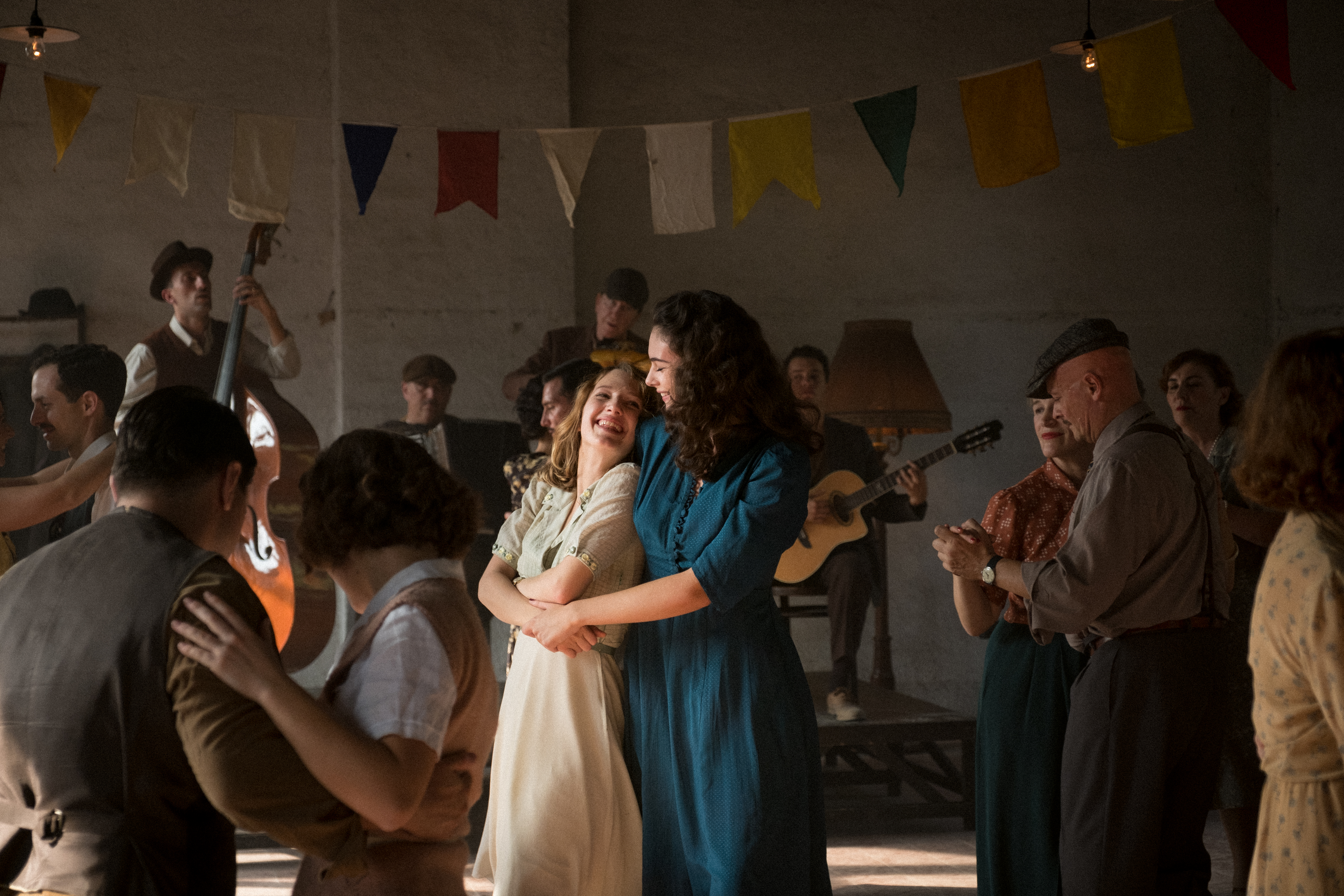Laura Luchetti’s The Beautiful Summer (La bella estate) is anchored by a complex, though assured, performance by Yile Vianello as Ginia, a young seamstress introduced to the Bohemian art scene as World War II approaches.
Originally from the countryside, Ginia works at a fashion atelier in Torino, where she shares an apartment with her brother Saverio. The two siblings, living away from their parents, have found a new home here, with their routine and circle of friends. One day at the river, she meets a friend of a friend, Amelia, who makes an impression when she jumps from a rowboat, fully dressed, and swims up to the shore.
Amelia is an artists’ model, embracing a profession and lifestyle looked down upon by Saverio and their circle of friends, but Ginia is drawn into Amelia and the company she keeps: artists, Bohemians, with a more colorful way of life than her everyday world. There is an unspoken attraction between the pair, and both explore relationships with male painters, but the two young women share an ongoing bond.
Ginia’s performance by Yile Vianello (Corpo celeste, Where the Wind Blows) gives her a presence similar to Saiorse Ronan in Brooklyn; initially reserved and on the outside, she is just on the edge of the action, the odd one out at parties, but her gaze is fully engaged and ever-lingering, just hesitating to step in to life.
Amelia is who brings Ginia out of her shell, and their romance finds a poetic moment in one particular scene at a ballroom party. The two dance together, unafraid with no self-consciousness. They hold hands, Ginia rests her head on Amelia’s shoulder, the music gradually fades out, as the two sway together, dancing on in silence.
Even more than the romance, however, the most touching relationship in the film is between Ginia and Saverio, sister and brother. Though not exactly a slacker, he is dependent on her, for her domestic abilities and her encouragement, as he struggles with writing and going back to school. Even as her life takes her in another direction, spending her birthday with Amelia and their artist boyfriends, she comes home late to find a cake and gift left by her brother. And in turn, when Ginia is who needs consolation, Saverio is there to get her through it.
The story’s historical context, set just before World War II, is an Italy with fascism on the rise, with literal black shirts drying at Ginia’s apartment’s clothesline. Though not directly impacting the action of the narrative, in 1938, the possibility of same-sex romance and free-spirited, artistic community feel doomed from the start.
The Beautiful Summer isn’t the most convincing, or rational, love story, though as a coming-of-age story of self-discovery, Ginia’s journey is well grounded by Vianello’s excellent performance, of a young woman with layers both strong and vulnerable, passive and passionate.
The Beautiful Summer (La bella estate) had its North American premiere at the 59th Chicago International Film Festival.

Leave a Reply